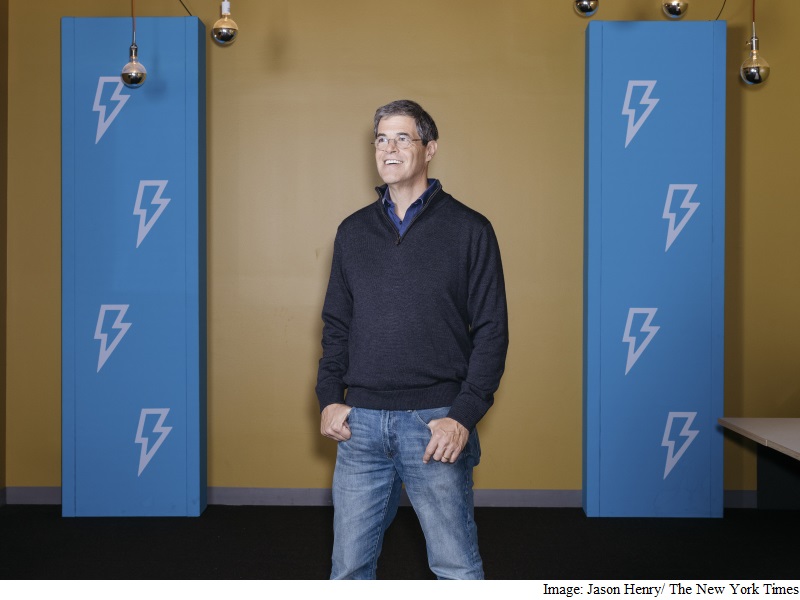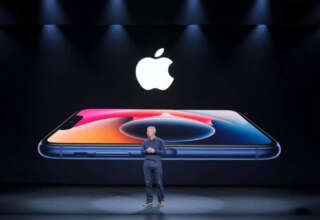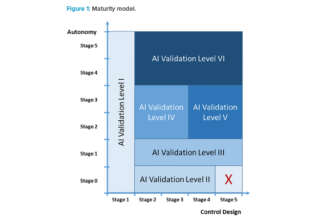
If you have sent email on Google or used Microsoft’s browser or databases, you have touched the technology handiwork of Adam Bosworth.
Bosworth, a tall and grizzled but still trim 60-year-old, is a Johnny Appleseed of sorts in the tech industry, with a penchant for being intimately involved in the creation of generations of widely used technology.
While it is never easy to predict what the next big thing will be, identifying what Bosworth is working on is always good for clues. Right now, along with competitors at companies like Amazon and Google, he is building what some call a “data singularity.”
Imagine if almost everything – streets, car bumpers, doors, hydroelectric dams – had a tiny sensor. That is happening through Internet of Things projects run by big companies like General Electric and IBM.
All those devices and sensors would also wirelessly connect to far-off data centers, where millions of computer servers manage and learn from all that information.
Those servers would then send back commands to help whatever the sensors are connected to operate more effectively: A home automatically turns up the heat ahead of cold weather moving in, or streetlights behave differently when traffic gets bad. Or imagine an insurance company instantly resolving who has to pay for what an instant after a fender-bender because it has been automatically fed information about the accident.
Think of it as one enormous process in which machines gather information, learn and change based on what they learn. All in seconds.
“I’m interested in affecting 5 billion people,” said Bosworth, a former star at Microsoft and Google who now makes interactive software at Salesforce.com, an online software company that runs sales for thousands of corporations. “We’re headed into one of those historic discontinuities where society changes.”
It is lofty language, no doubt, but Bosworth and others believe they are on the brink of one of next big shifts in computing, perhaps as big as the Web browser or the personal computer.
But building an automated system that can react to all that data like a thoughtful person is fiendishly hard – and that may be Bosworth’s last great challenge to solve.
It is difficult to say just how big this business could be, but there are two good indicators: Analysts atGartner estimate that by 2019 retail cloud computing – the data center side of the equation Bosworth is working on – will double in size, to $314 billion (roughly Rs. 20,79,772 crores). The sensors on objects will be a $2.6 trillion business, an increase of 250 percent, Gartner estimates.
Bosworth went to Harvard with Bill Gates, where he took just one class in computers while studying Asian history. He nonetheless landed a job on Wall Street, where he persuaded his bosses to give him $1 million for minicomputers – the cutting edge of computing before personal computers – that could deliver the first instant reports on how business was doing.
He got interested in tech’s next big thing, PCs, and wrote an early spreadsheet program. He joinedMicrosoft in 1989. His first years there were spent on databases, but as the Internet got big he helped turn browsers from software that looks up Web pages to software that interacts with the Web.
He and Gates repeatedly argued over the importance of the Internet, according to people there at the time. Gates may also have goaded Bosworth, knowing he is the sort who does not like to be told something is not possible.
“He sees out into the future, but not too far that you can’t build something,” said Brad Silverberg, a Seattle venture capitalist who has known Bosworth since 1981 and was his boss at Microsoft. “If you want to make sure something gets done, tell him not to do it.”
The son of a demanding private school headmaster, Bosworth also clashed with Larry Page, Google’s co-founder and chief executive, while working there on interactive software and a failed effort to build online health services.
“We had styles that weren’t synergistic,” Bosworth said. “He looks intensively at massive amounts of data-gathering, and assumes he’ll be able to do something with it using math. I was focused on getting people to communicate with other people.”
He left Google in 2007 to start Keas, an online health management company. He left in 2011 for Salesforce, but is still on Keas’ board.
Marc Benioff, the chief executive at Salesforce and a friend of Bosworth, asked him to look at the technology being used at the San Francisco company, which was founded in 1999 and was one of the first to use cloud computing technology.
Over lunch a few months later, Bosworth told Benioff that his once-revolutionary company was in peril.
“Computers are 50 times faster than when Salesforce started,” he said. “I told Marc, ‘There is a whole new technology that is going to overtake you, the way the Web overtook Microsoft.'”
That technology – the data singularity – is what Bosworth is working on at Salesforce.
If he is right, this new era in computing will have effects far beyond a little more efficiency. Consumers could see a vast increase in the number of services, ads and product upgrades that are sold alongside most goods. And products that respond to their owner’s tastes – something already seen in smartphone upgrades, connected cars from BMW or Tesla, or entertainment devices like the Amazon Echo – could change product design.
Analysts foresee a scramble to own and manage these systems and their data, and ever more power accruing to just a few companies like Google, Amazon and Microsoft, which already have the global computing systems and reach to make it happen.
“The idea is turning the world into a smart object that can be continuously improved, and we couldn’t be more excited,” said Matthew Wood, general manager of product strategy at Amazon Web Services, or AWS, the retailer’s giant cloud computing business.
Few outfits have the engineering talent to manage this sort of thing. One year after starting the business, for example, Microsoft’s cloud handles 1 trillion sensor messages a week.
Salesforce, which is worth $54 billion (roughly Rs. 3,57,667 crores), is an underdog compared to that tiny group of tech behemoths. It lacks global data centers, but does control important data, like information about what customers are buying.
Who will ultimately control that data, from the sensors to the cloud and back, is one of the most contentious questions in tech.
“You’ve got Amazon knowing everything about purchasing, Google knowing everything about what people do on the Internet, and Salesforce knowing everything about the revenue side of a business,” said Scott Raney, a venture capitalist at Redpoint Ventures who invests in companies related to what Bosworth is working on.
“Lay computer processing on all that, and it’s powerful to a point where a little creepiness sets in; no one else will have the data,” he added. “I’m buying the stock of all the companies. I just hope they’ll be benevolent dictators.”
[“source-gadgets.ndtv”]






